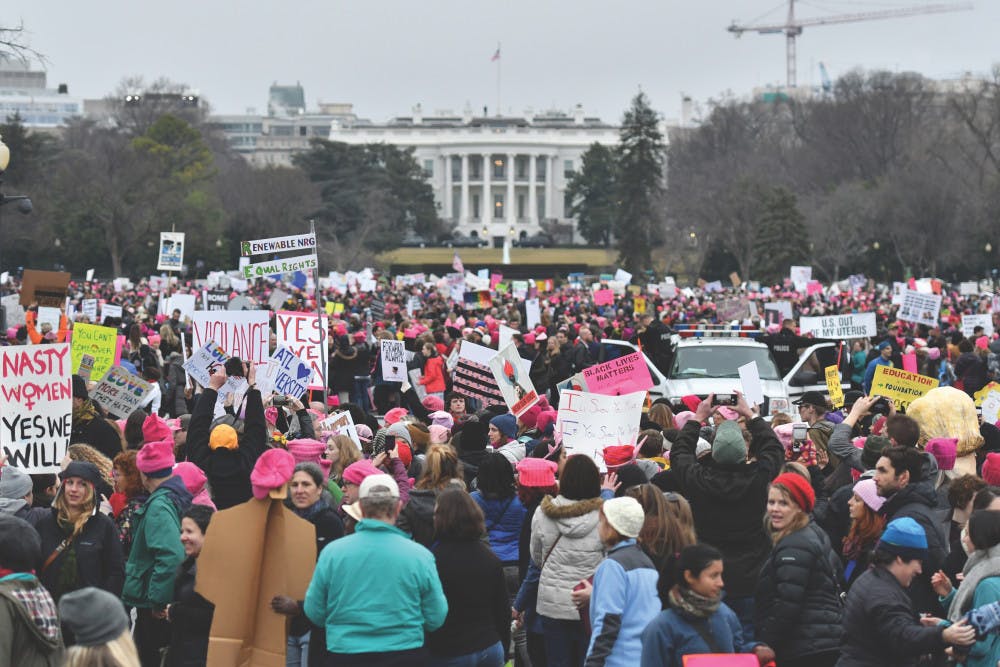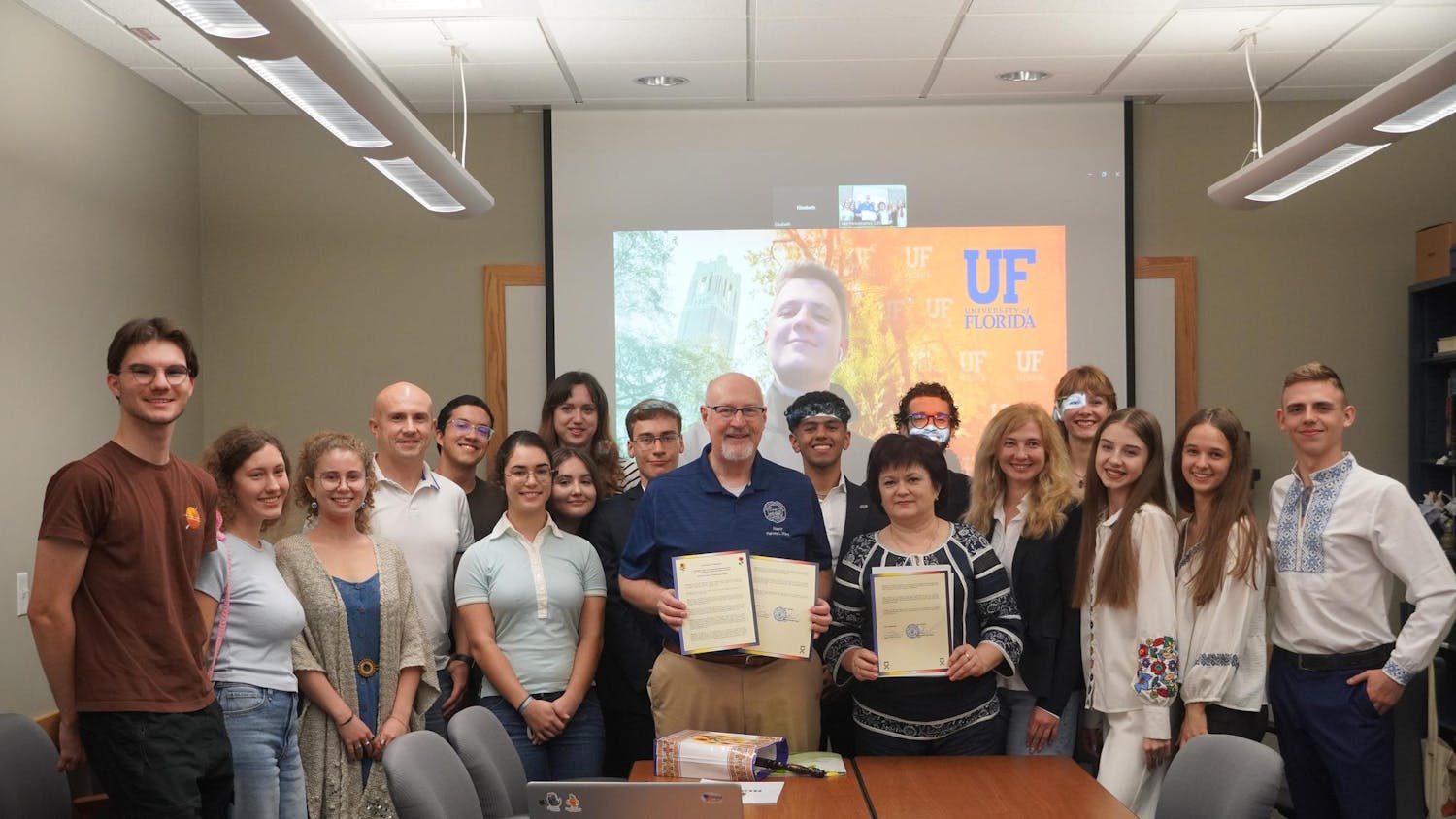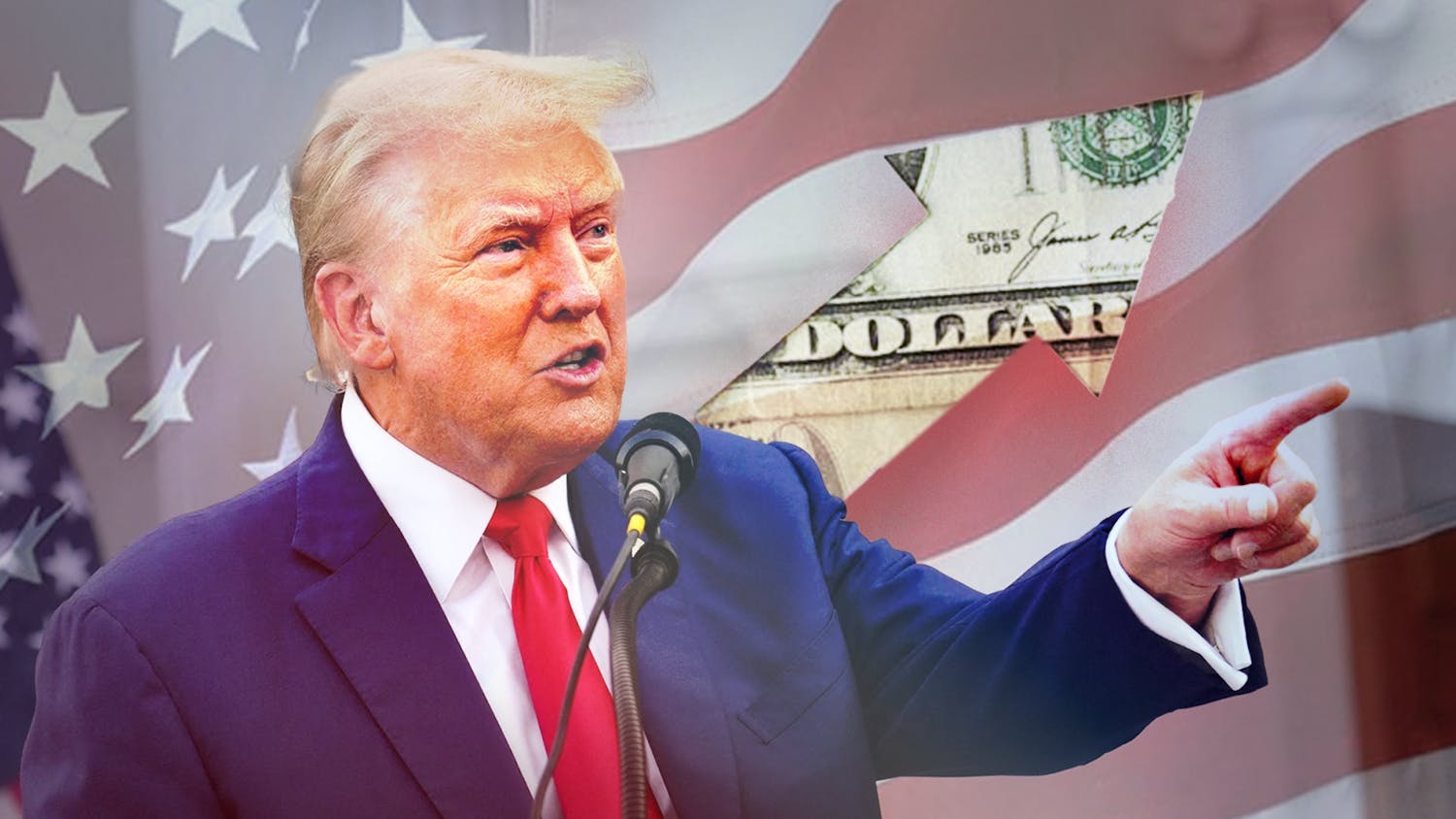Aliya Miranda remembers standing in a sea of people as hundreds of thousands marched on Washington, D.C. in January.
The UF telecommunication junior was part of a group of 17 students organized by the UF Center for Gender, Sexualities and Women’s Studies Research and the Samuel Proctor Oral History Program. They attended and documented the Women’s March on Washington, which drew about 500,000 participants a day after President Donald Trump was inaugurated.
On Wednesday, the group spoke to about 50 students and faculty members about the experience. They plan to archive interviews conducted during historic march, which will be made public and possibly turned into a podcast, she said.
“The most difficult part about this trip was getting over my personal biases and asking constructive questions that would give us answers that we may not have heard a million times before in the media,” the 20-year-old said.
Holland Hall, the research coordinator for the trip, said the goal was to collect the
voice of the people.
“We were trying to get a very objective view and a wide lens of what was going on in D.C.,” the 24-year-old said.
On Thursday, the Women’s March on Washington Archives Project Facebook
page announced it will be partnering with the UF programs to archive the protest.
During the trip, Miranda said she and the other students were sometimes met with hostility, especially on Inauguration Day.
Although the results of the presidential election depressed her, she said documenting the march was empowering.
“(The trip) made you realize just how many people are there to support you,” she said.
This article has been updated to reflect that the 17 students were organized by the UF Center for Gender, Sexualities and Women’s Studies Research and the Samuel Proctor Oral History Program.
Thousands gather on the Ellipse near the back lawn of the White House at the conclusion of the Women’s March on Washington. Many of the marchers placed their posters along a few small fences to create “walls” near the White House.






